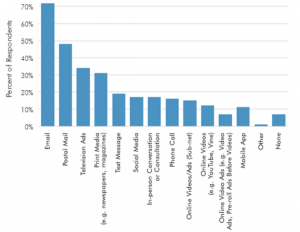By Anastasia Chernikova
Entrepreneurship can come with a sense of freedom. When you are your own boss, there are no mandatory 9-to-5 work days, no one can tell you what to wear to the office, and no one can fire you.
In 2022, about 50.5 million people quit their jobs, and many, many people quit their jobs in order to become entrepreneurs. With the looming threat of layoffs, it is possible that even more workers will consider venturing into entrepreneurship in 2023.
While owning a business can feel liberating in some ways, it can also introduce new kinds of stress. Being responsible for all parts of a business, especially in the beginning, often comes with frustration. Being a successful entrepreneur and leader requires good mental health habits and a conscious dose of self-care to stay afloat during challenging times.
Through my own journey with entrepreneurship and mental health, I have found several rituals that have helped me stay strong.
How I learned to manage my mental health
Three years ago I found myself struggling with clinical depression. For two months, my brain was fixated on negative thoughts and catastrophic scenarios about my career. Rather than making progress toward my work goals, all of my ambitions and joyous moments were covered up by gloomy spirits and low energy. I was also suffering from severe insomnia that made it nearly impossible to be productive.
The first thing I did to manage my depression was find a therapist. During the first month, I was doing three sessions a week. My therapist said that I was recouping from the stress that I had experienced years earlier when I had just arrived in New York as an immigrant and was launching my business.
Back then, I didn’t know about meditation and other routines that could have helped me to pause and observe my emotions. Instead, I pushed hard and felt there was no time to take a break. But once things calmed down and I found financial stability, my brain was forced to finally face my difficult experiences, which resulted in depression.
I started opening up to entrepreneurs around me and was shocked by how many people had suffered from depression at some point. Being an entrepreneur means being ready to accept ups and downs, to adjust quickly and unexpectedly.
Here is my advice: It is much better to practice mental health techniques to help you get through difficult times before they happen.
Ultimately, I am grateful that I have had the opportunity to try many techniques for managing my mental health: therapy (cognitive behavioral therapy, psychoanalysis, body therapy), many types of exercise (yoga, high-intensity interval training, running), journaling, meditation, herbal teas, and also medications prescribed by psychiatrists.
Each person is unique, and there might be other options that work best for you. But here is what has worked for me as an entrepreneur:
Meditation
I often hear people say that they can’t meditate regularly because it’s hard to let thoughts go. I’ve tried Headspace and other meditation apps, but was struggling with consistency.
When I got diagnosed with depression, I decided to meditate every day. My friend recommended transcendental meditation (TM), a technique that is promoted by the David Lynch Foundation. In fact, Lynch wrote a book, Catching the Big Fish, about how TM helps him tap into his creative flow. I do it every morning when I wake up and again around 5 p.m. I’ve skipped my morning meditation only two or three times since I learned it three years ago. Sometimes you feel like it’s hard to relax, or you can’t find time for meditation, but I have found that these times are when I need it most.
Find a type of meditation that you prefer, make it a routine, and do it regularly. It’s one of those rare practices that has been scientifically proven to lower anxiety, calm down the mind, and increase productivity.
Journaling
When working with a cognitive behavior therapist, often the first step is to journal and define your emotions. This is because if you can name your thoughts and emotions, you are more able to identify patterns and change them if needed. Journaling has been instrumental in understanding my feelings as an entrepreneur.
In a recent article for Fast Company, Phoebe Gavin wrote about how journaling has helped her manage negative thoughts after being laid off. Journaling has also helped me manage negative professional thoughts. To me, it is especially helpful for calming down my mind before going to bed, when I am prone to have the most anxiety.
Exercise
I’ve tried different types of exercise over the course of my career. When I first started doing yoga, I was frustrated that it did not have an immediate impact on my mental health. But over time, I have found that yoga makes me feel balanced, confident, and calm—all characteristics that help me as an entrepreneur.
These days, I try to do yoga at least twice a week. Kundalini is my favorite form of yoga because it makes me feel energized and productive. I often practice it for 20 minutes in between work breaks. I will also practice a longer, more physical vinyasa flow in the evening.
I also try to do another form of physical activity at least once a week, such as Barre or high-intensity interval training. Even 20 minutes makes a difference and helps keep my mind out of dark places.

Gratitude practice
Practicing gratitude is another tool that has helped me. Researchers have found that practicing gratitude can increase prosocial behavior, improve relationships, and have a positive impact on mental health. When I can’t sleep, instead of counting sheep, I recount all the things I’m grateful for.
During the day, I try to think about (and sometimes write down) 5 to 10 things that I’m grateful for—from having time to meditate in the morning to receiving a compliment from a stranger on the street. During this exercise, I often get inspiration for good things I could do for others as well. And doing good acts for others always helps my mental health.
Know what brings you joy
When I started dating my husband, I was shocked that whenever he got a paycheck or we would go to a store, he didn’t want anything. When I noticed him being sad and asked what I could do for him, he could not come up with one idea of what would make him feel better.
From my early days of running a business, I learned to reward myself. Got a new contract—I’m buying a nice candle. Got a larger contract—we are going to celebrate in one of our favorite restaurants. These celebrations of success are important for our mental health, but so many people can’t even allow themselves to desire something.
These small pick-me-up rewards can be a slice of dark chocolate cake, a bouquet of roses, a good bath with soap foam, a David Bowie song, or a walk along the water. Whatever it may be, take time for small pleasures that make you feel human and joyful.
Sufficient sleep
It may seem obvious, but without a good night’s sleep, no one can do their best work. Most of us need seven to eight hours of sleep. However, we tend to overlook how many problems sleep deprivation can lead to, from mood swings and irritability to physical and somatic diseases. Therefore, sleep should be of the utmost importance to any busy person.
It can feel great to be your own boss. However, to handle such responsibility means becoming more self-aware about your mental health. The earlier you set up a routine, the better you are going to feel in the long run and the happier you’ll feel about yourself and your business.
(19)
Report Post







